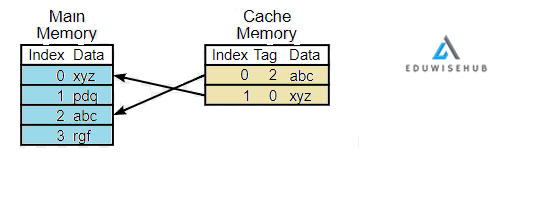Introduction
In ultra-modern rapid-paced virtual international, cache files play an important function in improving the performance and velocity of our gadgets. but, many customers are nevertheless left scratching
their heads, wondering what cache documents are and a way to access them. if you’ve ever puzzled approximately cache files and their importance, you’ve come to the right location.

Understanding Cache Files
What Are Cache Files?
Cache files are temporary storage areas on your
device that store data to help applications and processes run faster and more
efficiently. They contain information that can be quickly accessed, reducing
the need to fetch data from slower storage locations.
How Do Cache Files Work?
Cache files work by storing frequently accessed
data, such as website images, app data, and system files, in a readily
available form. When you open an application or visit a website, your device
checks the cache for relevant data before fetching it from the internet or
device storage, significantly speeding up the process.
Types of Cache Files
Temporary Internet Files
Temporary Internet Files, also known as browser
cache, store web page elements like images, scripts, and style sheets. This
hurries up your browsing revel in with the aid of loading previously visited
websites faster.
System Cache
System cache files are created by the operating
system to store frequently used data, such as system settings and app
preferences. These files help reduce system lag and improve overall performance.
App Cache
App cache files are generated by applications to
store user-specific data and settings. Clearing the app cache can resolve
issues like app crashes and sluggish performance.
Why Cache Files Matter
Improved Performance
Cache documents are critical for an unbroken
consumer to enjoy. by means of reducing the want to fetch records from slower
assets, they contribute to faster app loading instances and smoother net
browsing.
Reduced Data Usage
Cache files can also help conserve data,
especially on mobile devices. By storing frequently accessed data locally, they
reduce the amount of data that needs to be downloaded from the internet.
How to Open Cache Files
Using Windows File Explorer
To access cache files on your Windows PC, follow
these steps:
- Open File Explorer.
- Navigate to the “C:Users<Your
Username>AppData” folder.
- Select the relevant application’s folder to access
its cache.
Clearing Cache on Web Browsers
Clearing your browser cache is a simple way to
free up storage space and improve browser performance. Each browser has its own
cache-clearing process, which can usually be found in the settings or
preferences menu.
Using Third-party Tools
Several third-party tools and applications are
available for managing cache files. Tools like CCleaner and CleanMyPC offer
user-friendly interfaces to help you clear cache files effectively.
Managing Cache Files
Regular Cleanup
Regularly clearing cache files is essential to
prevent storage bloat and potential performance issues. Make it a habit to
clear cache files, especially when you notice your device slowing down.
Adjusting Cache Settings
Many applications allow you to adjust their cache
settings. You can specify how much storage space an app can use for caching or
even disable caching altogether if you prefer.
Cache Backup
If you’re concerned about losing important data
stored in cache files, consider creating backups. Some applications provide
options to export or back up cached data.
Common Cache File Errors
File Not Found
Sometimes, cache files can become corrupted or
missing, leading to a “File Not Found” error. In such cases, clearing
the cache and allowing the application to recreate it can resolve the issue.
Access Denied
If you encounter “Access Denied” errors
when trying to access cache files, ensure that you have the necessary
permissions to view and modify these files. Administrative privileges may be
required.
Corrupted Cache
Corrupted cache files can cause various problems,
including crashes and app instability. Regularly clearing cache files can help
prevent these issues.
Cache File Security
Risks and Concerns
While cache files offer numerous benefits, they
can also pose security risks. Cached data can potentially be accessed by
unauthorized parties, so it’s crucial to be cautious.
Protecting Your Cache
To protect your cache files, make sure your device
is secure with strong passwords, encryption, and up-to-date security software.
Additionally, consider using apps that offer secure cache storage.
Frequently Asked Questions
What exactly is a cache file?
A cache file is a temporary storage location that
stores frequently accessed data to speed up processes and reduce the need for
constant data retrieval from slower sources.
Can clearing cache files harm my device?
No, clearing cache files is generally safe and can
help improve device performance. However, be cautious not to delete essential
system files by mistake.
How often should I clear my cache?
The frequency of cache clearing depends on your
device usage. Regularly clear your cache when you notice performance issues or
storage bloat.
Are there any tools to automate cache management?
Yes, several third-party tools like CCleaner can
automate cache management, making it easier to keep your device clean and
optimized.
Can I recover deleted cache files?
Once cache files are deleted, they are typically
not recoverable. However, you can recreate them by using the application or
visiting the website again.
